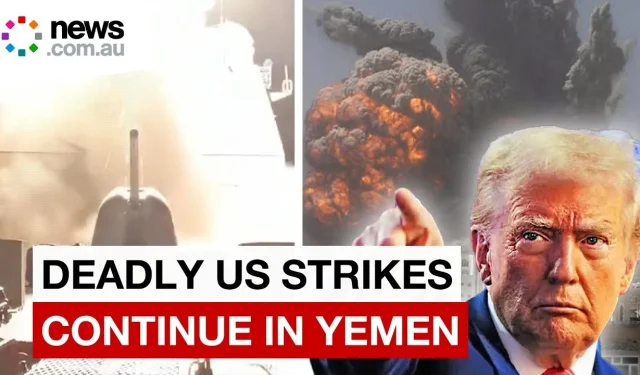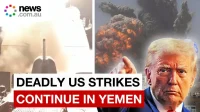Overview of the Recent Military Actions
The United States has conducted a series of military strikes against Houthi forces in Yemen, marking the largest U.S. military operation in the Middle East since President Donald Trump’s administration began in January. The Houthi-run health ministry reports that at least 31 individuals have been killed in these strikes, escalating tensions in an already volatile region.
Official Statements and Responses
U.S. Defense Secretary Pete Hegseth announced that the U.S. military campaign will persist until the Iran-aligned Houthis cease their assaults on maritime shipping in the Red Sea. In an interview with Fox News, Hegseth stated, “The minute the Houthis say we’ll stop shooting at your ships, we’ll stop shooting at your drones, this campaign will end. But until then, it will be unrelenting.”
Houthi Claims and Escalation
In response to the U.S. actions, a military spokesperson for the Houthis claimed, without providing evidence, that they had targeted the U.S. aircraft carrier USS Harry S. Truman and other naval vessels using ballistic missiles and drones. Such declarations indicate an escalating conflict as both sides seem poised for further military engagement.
International Reactions
The Houthis characterized the U.S. strikes as “war crimes” and affirmed their readiness to “meet escalation with escalation.” Additional international concern arose when Moscow called for Washington to halt its military operations. Iranian officials condemned the U.S. actions, with a commander from Iran’s Revolutionary Guards asserting that the Houthis operate independently and do not require Iranian directives.
Context of the Conflict in the Region
The Houthi movement, which has controlled significant territories in Yemen over the past decade, has recently threatened to renew attacks on Israeli shipping in the Red Sea unless Israel lifts its blockade on humanitarian aid entering Gaza. Following the onset of the war between Israel and Hamas in late 2023, the Houthis escalated their maritime attacks as a show of solidarity with the Palestinian cause.
Potential Consequences for Regional Stability
President Trump explicitly urged Iran, the primary backer of the Houthis, to discontinue its support for the group and threatened to hold Tehran accountable for its actions. This ongoing conflict not only poses risks for maritime trade in the Red Sea but also raises significant concerns for diplomatic relations among Middle Eastern countries, particularly between Iran and Western powers. The escalating military actions could potentially lead to wider regional instability, affecting global oil supply routes and triggering further humanitarian crises in Yemen and surrounding areas.


